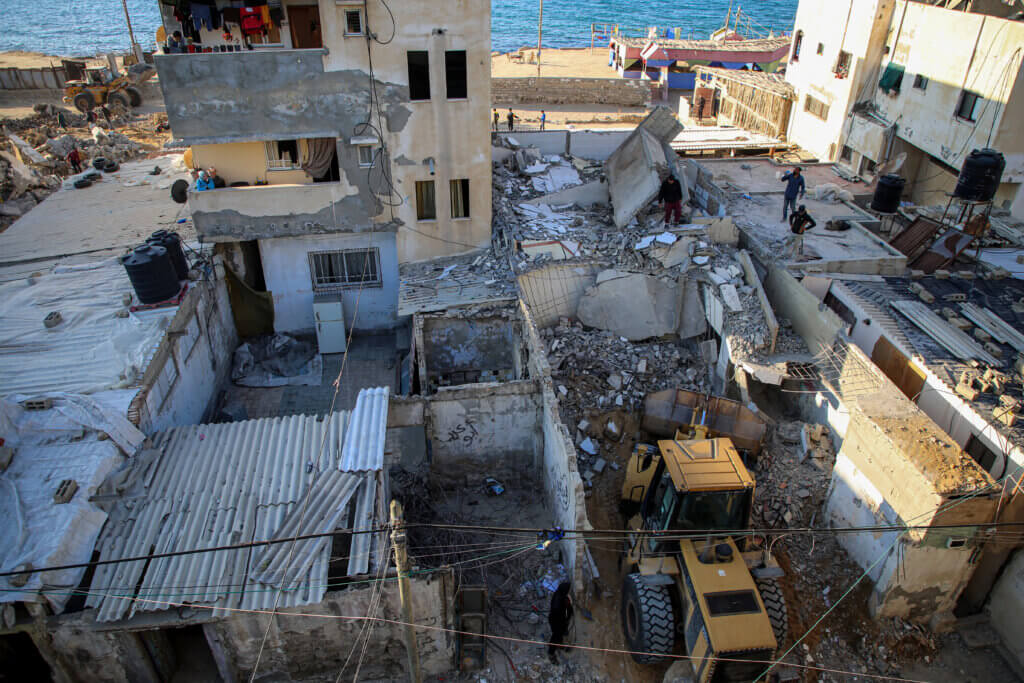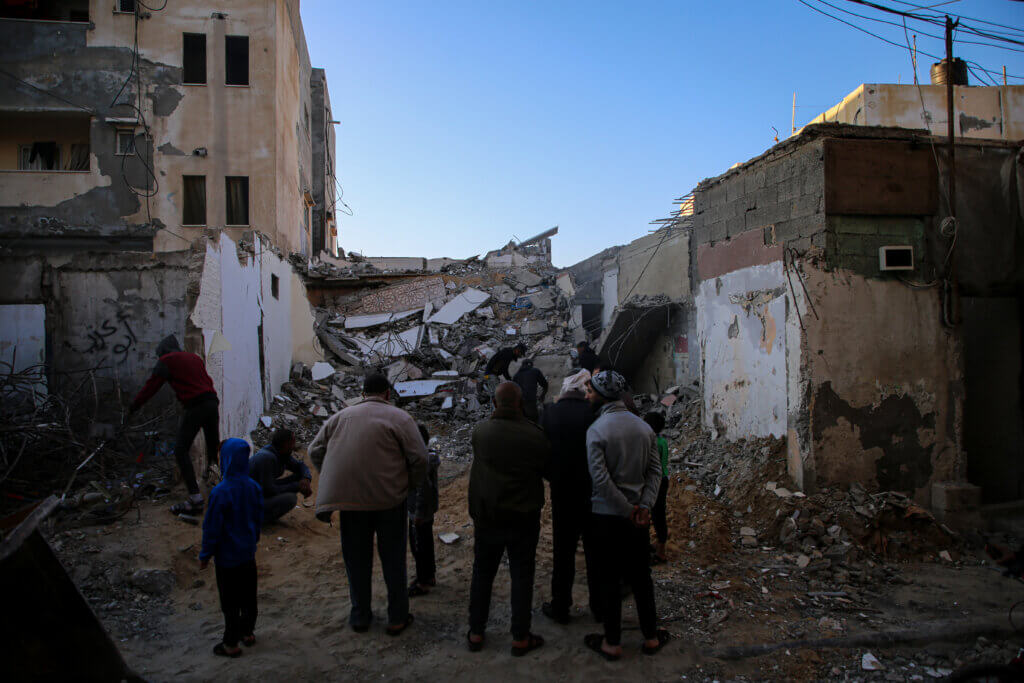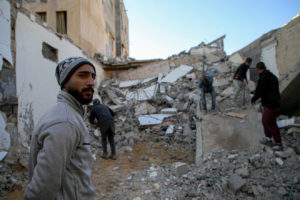A group of neighbors standing on al-Rasheed street of Al-Shati refugee camp west of Gaza City watch their homes falling down, bit by bit. Fathers and sons sit in front of their homes all day, observing the demolition as it is carried out by the Hamas-led government in Gaza. Some families have already moved to temporary housing for rent, but they keep coming back for a last look before their memories are forever erased.
Among the onlookers, Abu Khalil Al-Hinawi, 45, and his son Khalil, 23, appear the most devastated, unable to process what they are seeing.
“This will separate us,” Abu Khalil says. “We are a large family of 25 people. We are brothers living with each other and our old mother among us. Now everyone will be in a different home, and some of us might not even be able to buy a new home with the government’s compensation.”

The Ministry of Public Works in Gaza has launched Project “Bottleneck,” or ‘Unk al-Zujajeh in Arabic. The project aims to demolish homes in crowded areas near the camp’s coastal road, in order to widen the street. This decision was met with outrage and protest from the area’s inhabitants. Months ago, it was declared that demolitions would commence at the beginning of this year.
For many who lived in these homes on the sea, which they could see from their windows, they are irreplaceable. Most of the families will be unable to find houses that fit the entire family if they were to use the government’s compensation payments, which are paid in five to six monthly installments — as opposed to one lump sum, meaning that many are unable to expediently find new homes through the use of cash.
Moreover, the people’s appeals — whether they center on the payment amount or the demolition decision itself — have been roundly rejected by the government, and the project is slated to continue.
The demolitions commenced on Wednesday, January 18, with four homes being completely destroyed since. Abu Khalil’s family home was one of the first to go.
Since Abu Khalil’s house was completely demolished, he has only received a first installment of $6,000. He still awaits four checks with the same amount, to be paid consecutively in the coming four months. In the meantime, Abu Khalil has been forced to rent a house for his family of six people and is forced to begin spending his first indemnity payment.
The families affected by Project Bottleneck have called on the government to provide alternative solutions, but the government continues to make promises for eventual compensation, which continues to be postponed.
“We asked them to secure other apartments for us to settle in, but they said that would happen after six to seven months,” Abu Khalil told Mondoweiss.


